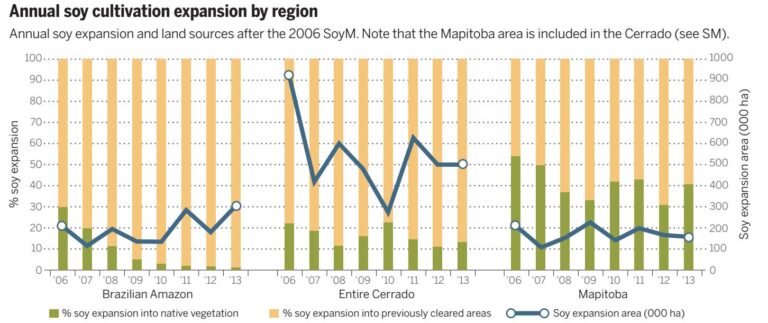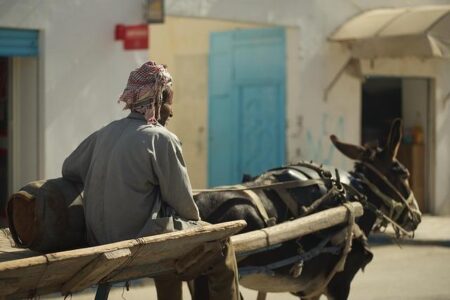Brazil’s soy moratorium, a pivotal environmental agreement aimed at curbing deforestation in the Amazon rainforest, is facing renewed scrutiny and debate. As Brazil’s government and key agricultural stakeholders clash over the future of the moratorium, the outcome could significantly impact both the country’s environmental policies and its role in the global soy market. This article explores the latest developments in the soy moratorium fight, the stakes for conservation and agriculture, and what the next steps might mean for Brazil and the planet.
Brazil’s Soy Moratorium Under Scrutiny Implications for Deforestation and Global Markets
The ongoing debate over the effectiveness of Brazil’s soy moratorium has spotlighted critical concerns regarding deforestation in the Amazon. Originally designed as a voluntary agreement between environmental groups and soy producers to halt deforestation linked to soy expansion, recent investigations indicate potential loopholes and enforcement challenges. Critics argue that despite its initial success in curbing direct soy-driven forest clearing, indirect effects such as cattle ranching on newly deforested lands continue to undermine conservation efforts. This scrutiny raises pivotal questions about the moratorium’s actual impact and whether new, more robust mechanisms are needed to halt the accelerating destruction of one of the planet’s most vital ecosystems.
Beyond environmental consequences, the soy moratorium fight carries significant implications for global markets. Soy is a cornerstone commodity feeding international demand, especially from China and Europe, meaning that regulatory uncertainties risk disrupting supply chains and influencing commodity prices worldwide. Traders and consumers alike are increasingly attentive to the sustainability credentials of soy imports, prompting a shift toward transparency and traceability in agricultural supply chains. Policy makers, companies, and NGOs now face mounting pressure to balance economic interests with urgent environmental commitments, making the evolution of Brazil’s soy policies a bellwether for global agricultural sustainability.
- Environmental Impact: Moratorium success vs. deforestation loopholes
- Market Influence: Supply chain transparency and trade risks
- Future Outlook: Demand for stricter regulations and enforcement
| Aspect | Current Status | Challenges |
|---|---|---|
| Deforestation Rates | Declining but uneven | Indirect land use changes |
| Compliance | Voluntary with mixed results | Enforcement gaps |
| Global Trade | High demand, rising scrutiny | Risk of supply disruptions |
Key Stakeholders Clash Over Environmental Accountability and Economic Interests
The ongoing dispute highlights a fierce confrontation between environmental advocates and agribusiness sectors, each wielding significant influence in Brazil’s soy industry. Conservationists argue for stricter enforcement of the soy moratorium, which aims to curtail deforestation in the Amazon by prohibiting the purchase of soy grown on recently cleared land. They emphasize that without renewed commitment, the risk of irreversible damage to biodiversity and indigenous territories will escalate dramatically. Meanwhile, industry representatives push back, stressing the importance of economic growth and job creation, and express concern that stringent measures could stifle Brazil’s competitiveness in the global soy market.
Negotiations have revealed a complex landscape of interests, where economic incentives often clash with environmental priorities. Key points of contention include:
- Enforcement mechanisms: Who ensures compliance and what penalties apply?
- Scope of the moratorium: Whether to expand it beyond the Amazon to other sensitive biomes.
- Market access: Balancing international buyer demands against domestic economic pressures.
To illustrate the stakes, the table below summarizes the primary positions held by each faction:
| Stakeholder | Primary Concern | Proposed Solution |
|---|---|---|
| Environmental Groups | Reducing deforestation rates | Stricter moratorium enforcement and wider geographic coverage |
| Agribusiness | Maintaining export volumes | Flexible regulations and economic incentives for sustainable soy |
| Government Officials | Balancing growth & environment | Monitoring systems and stakeholder dialogue platforms |
Recommendations for Strengthening Enforcement and Promoting Sustainable Soy Production
Strengthening enforcement mechanisms is crucial to curb illegal deforestation tied to soy cultivation in Brazil. Authorities must prioritize enhanced satellite monitoring combined with on-the-ground inspections, enabling rapid response to violations. In addition, fostering transparency through publicly available supply chain data can empower civil society and international buyers to hold producers accountable. Collaboration between government agencies, indigenous communities, and environmental organizations will also create a multi-layered oversight system that addresses the complex dynamics of land use and agricultural expansion.
Promoting sustainability requires incentivizing producers to adopt deforestation-free soy practices by offering financial benefits, technical support, and certifications that open access to premium international markets. Key focus areas include:
- Implementing strict traceability protocols to guarantee soy origin
- Encouraging diversified crop rotations to reduce environmental impact
- Supporting smallholders with sustainable farming training to broaden impact
- Strengthening legal frameworks to close loopholes exploited in land conversion
| Action | Expected Outcome | Stakeholders Involved |
|---|---|---|
| Satellite Monitoring Upgrades | Real-time illegal activity detection | Government, NGOs, Tech Firms |
| Supply Chain Transparency | Greater accountability, reduced leakage | Buyers, Producers, Civil Society |
| Financial Incentives | Increased adoption of sustainable farming | Farmers, Banks, Certification Bodies |
| Legal Reforms | Enhanced punishment and deterrence | Lawmakers, Judiciary, Enforcement Agencies |
The Way Forward
As Brazil navigates the complexities surrounding its soy moratorium, the outcomes of this high-stakes debate will have far-reaching implications for global agriculture, environmental conservation, and trade relations. Stakeholders across the spectrum-from policymakers and farmers to environmental groups and international buyers-will be closely watching the next steps. Ultimately, the resolution of the moratorium conflict will shape not only Brazil’s economic future but also the global effort to balance agricultural development with sustainable environmental practices.




